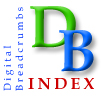|
The future work of this study will entail a process of observing the participant-researchers as they search, capturing their searches with video-capture software, and having them create speak-aloud protocols of their search practices in action. As the study progresses, we intend to use the material we gather to inform the work of our participants, creating, in a sense, a community of learners whose activities serve as both a dataset that we can use to improve the teaching of research strategies and the design of information systems, and a pool of shared information that helps us and our participant-researchers think about, understand, and improve our own practices. As part of this attempt, we will review the search practice material we gather, noting statements or behaviors we find interesting. Following this we will assemble focus groups of three or four participants, asking them to consider the information we have marked and to engage in further discussions regarding these practices.
Clearly, this method will not allow us to make claims about user practices that are in any way pure or "natural." We assume that their practices will be mediated by their interactions with us, the necessarily artificial search situations, and ultimately by their stance as contributors to a thoughtful dialogue about academic search practices. We hope that this rich combination of practice and discussions-about-practice will yield thoughtful and thought-provoking responses that move us beyond our personal limitations--the inability to see beyond our own search practices and our stance as teachers and researchers in academic environments. Perhaps our most far-reaching goal is to begin a discussion in which researchers at all levels work to consider how new practices for finding and using information are changing the role of the academic institution. Such research may also help define the responsibilities of the professionals whose work involves both making resources available, as well as shaping the ways that resources are used in the production of scholarly knowledge.
previous | next
|

